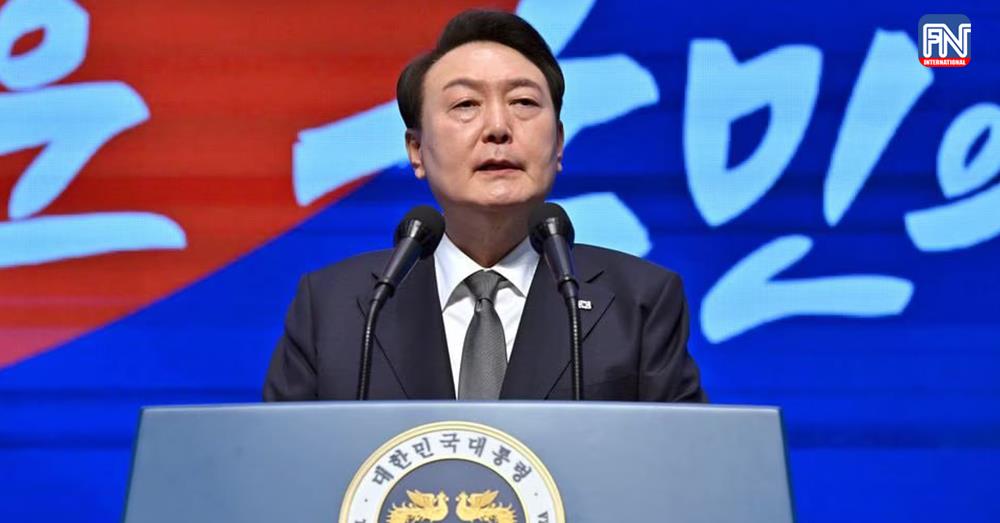SEOUL, March 15 (Reuters) - South Korean President Yoon Suk Yeol said on Wednesday that cooperation with Japan is vital in confronting North Korea's growing threats and protecting global supply chains, calling on both countries to not snarl relations in domestic politics.
Yoon made the remarks in a written interview with international media, including Reuters, as he prepares to depart for Tokyo on Thursday for a meeting with Japanese Prime Minister Fumio Kishida, the first such visit in 12 years.
The planned trip comes after South Korea announced last week its companies would compensate victims of forced labour under Japan's colonial rule from 1910-1945, seeking to end a dispute that has undermined U.S.-led efforts to present a unified front against China and North Korea.
"There is an increasing need for Korea and Japan to cooperate in this time of a polycrisis, with North Korean nuclear and missile threats escalating and global supply chains being disrupted," Yoon said. "We cannot afford to waste time while leaving strained Korea-Japan relations unattended."
Some of the victims who were forced to work under Japanese colonial rule have rejected the government's compensation plan, potentially complicating Seoul's efforts to end the diplomatic spat.
But Yoon said it was time for the people of the two countries to move forward "rather than confront over the past", adding that Japan has expressed "deep remorse and heartfelt apology in regard to its past colonial rule through the position of its previous governments".
"What matters is to ensure that such positions and behaviour continue unwaveringly," Yoon said, urging both countries to "guard against bilateral relations being exploited for domestic politics".
Yoon's visit comes after North Korea fired two short-range ballistic missiles into the sea off its east coast on Tuesday, the latest in a series of weapons tests after leader Kim Jong Un ordered the military to step up drills.
"To deter North Korea's ever-more sophisticated nuclear and missile threats, we have to further strengthen ROK-U.S.-Japan security cooperation," Yoon said, adding he expected an intelligence-sharing pact with Japan, known as GSOMIA, to be invigorated as two countries restore trust.





